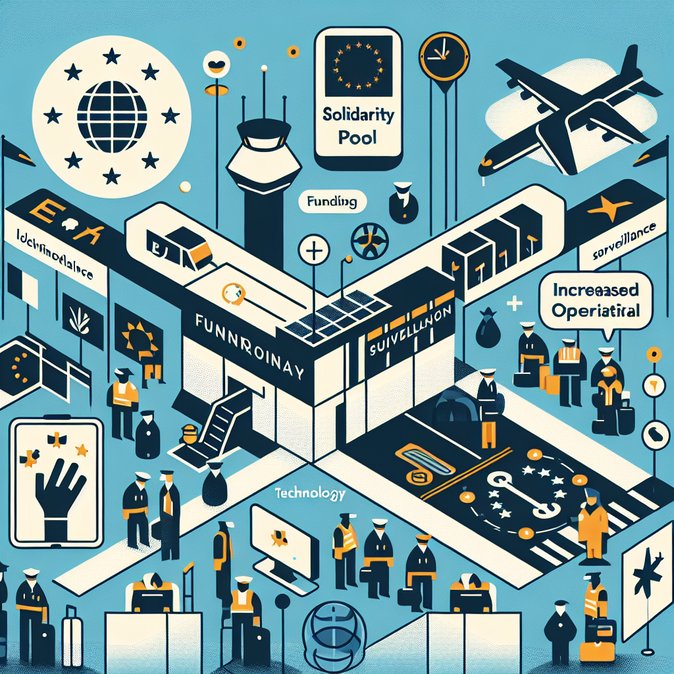
Hot on the heels of its migration-pressure report, the European Commission announced on 11 November the launch of a €600 million ‘solidarity pool’ designed to support member states most affected by irregular arrivals. While frontline countries—Greece, Cyprus, Spain and Italy—qualify for direct relocations, the Commission also listed Belgium, together with 11 other states, as ‘at risk’ and therefore eligible for priority funding, operational support and technology grants under the pact.
The solidarity mechanism, agreed in principle in June 2024, will become fully operational when the new Pact on Migration and Asylum enters into force in mid-2026. Ahead of that date, the Commission will open tenders worth €250 million for drone and anti-drone surveillance systems, partly in response to recent incursions that forced temporary closures of Brussels and Liège airports. Belgian authorities are expected to bid for part of this allocation to enhance surveillance along highway rest areas and key rail corridors that have become conduits for secondary movements.
![EU unveils solidarity pool; Belgium given priority access to migration ‘toolbox’]()
For Belgium’s federal police and Immigration Office, the additional EU resources could ease staffing shortages that have hampered both border-control operations and the adjudication of work-related residence permits. However, the solidarity support is conditional on measurable improvements in returns of irregular migrants—an area where Belgium’s rate (13 %) lags the EU average (21 %).
Corporate travel managers should anticipate more visible enforcement inside Belgium, including random checks on intercity trains and at motorway service areas. Foreign assignees are advised to carry residence cards or passports even on domestic journeys to avoid delays. Companies should also review contingency plans for possible short-notice transport disruptions linked to anti-drone operations at major airports.
Politically, the solidarity pool reignites debate within Belgium’s governing coalition over mandatory relocation quotas. Flemish nationalist parties argue that Belgium should focus on returns rather than relocations, while francophone liberals back the Commission’s burden-sharing model. The outcome could influence future work-migration quotas and integration-policy funding.
The solidarity mechanism, agreed in principle in June 2024, will become fully operational when the new Pact on Migration and Asylum enters into force in mid-2026. Ahead of that date, the Commission will open tenders worth €250 million for drone and anti-drone surveillance systems, partly in response to recent incursions that forced temporary closures of Brussels and Liège airports. Belgian authorities are expected to bid for part of this allocation to enhance surveillance along highway rest areas and key rail corridors that have become conduits for secondary movements.

For Belgium’s federal police and Immigration Office, the additional EU resources could ease staffing shortages that have hampered both border-control operations and the adjudication of work-related residence permits. However, the solidarity support is conditional on measurable improvements in returns of irregular migrants—an area where Belgium’s rate (13 %) lags the EU average (21 %).
Corporate travel managers should anticipate more visible enforcement inside Belgium, including random checks on intercity trains and at motorway service areas. Foreign assignees are advised to carry residence cards or passports even on domestic journeys to avoid delays. Companies should also review contingency plans for possible short-notice transport disruptions linked to anti-drone operations at major airports.
Politically, the solidarity pool reignites debate within Belgium’s governing coalition over mandatory relocation quotas. Flemish nationalist parties argue that Belgium should focus on returns rather than relocations, while francophone liberals back the Commission’s burden-sharing model. The outcome could influence future work-migration quotas and integration-policy funding.










